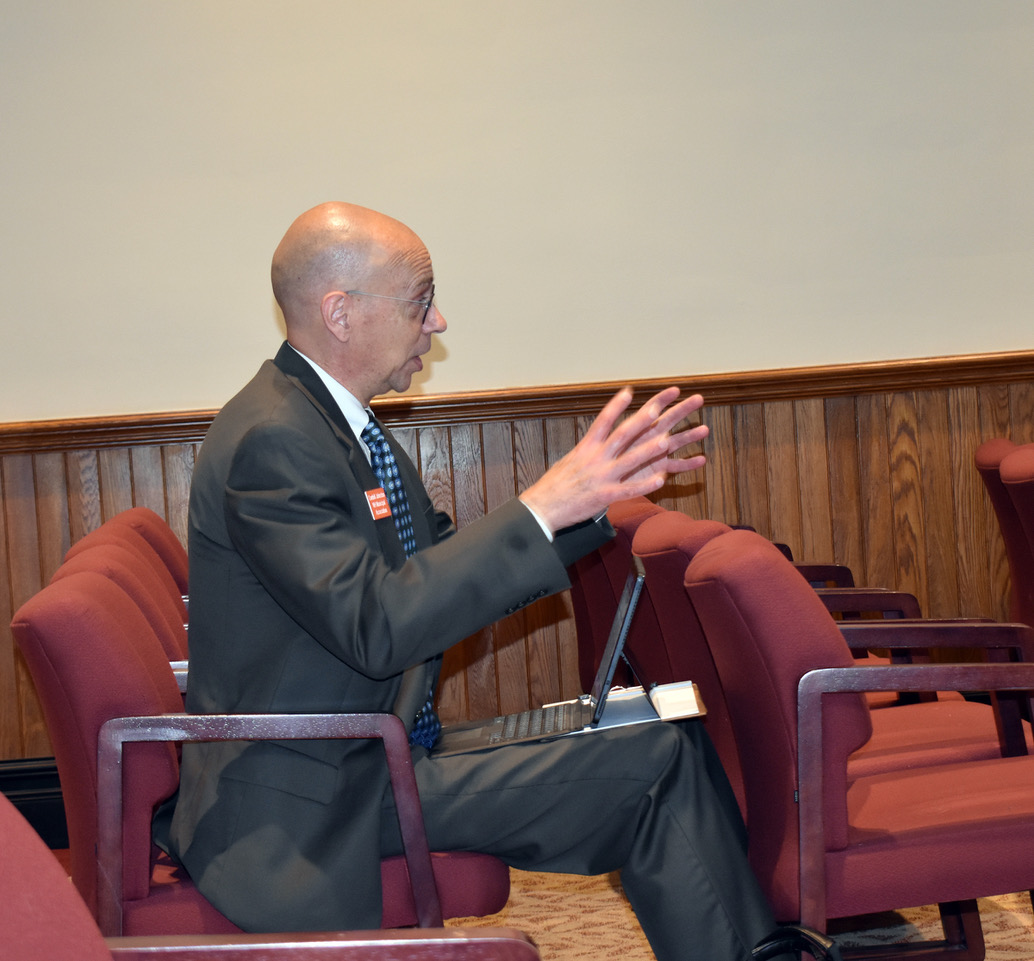By Thomas P. Caldwell, InDepthNH.org
CONCORD — Making it clear that it is encouraging all public bodies to provide opportunities for citizens to participate remotely, the committee making recommendations on virtual meetings is not asking the legislature to require public access.
Government Affairs Counsel Cordell Johnston of the N.H. Municipal Association had expressed concerns that the committee’s draft recommendation was not clear on the requirements for public participation.
“What I think you were talking about last week was, if we’re going to allow a [board] member to participate remotely, then we need to allow the public to have remote access,” he said. “My concern was, the technology for a member to participate remotely is pretty primitive. It’s a phone.”
For members of the public to participate, however, the board would have to figure out a way to provide for a Zoom meeting or some other way to link in. Municipalities may not have the technology to do that, he said.
Committee Chair Kurt Wuelper, R-Strafford, said they did recognize that problem. The draft the committee was reviewing on Oct. 20 notes that, if New Hampshire were to require full public participation, the state would have to pay for the purchase of that technology.
“Since local boards control public access now, we think that should continue with only technical issues addressed by 91A,” the document states.
Wuelper commented that he did not understand where the 91-A reference came from and suggested they strike that part of the sentence to make it, “Since local boards control public access now, we think that should continue.”
Members were generally happy with the draft report, making minor changes to clear up the language. The only major change was to add bullet points to highlight their main recommendations.
One point is to require at least two board members to be present at the physical meeting location.
Another is to allow board members participating remotely to be counted toward meeting quorum requirements.
A third asks boards to define their procedures for conducting hybrid meetings so the public is aware of the rules.
In discussing participation requirements, the document notes, “With ‘quorum’ undefined in the law, the word takes its common meaning of fifty percent of the body plus one.” Wuelper suggested adding, “unless the quorum is defined [differently] by the [governing] body itself.”
Other recommendations in the report: “We believe citizens should always have a physical space where they can observe their public servants conducting their business and speak to those chosen authorities face-to-face. This thought was buttressed by the consideration that many citizens still remain disconnected from and/or uncomfortable with technology required to participate remotely.”
Remote participation by board members “should be allowed under non-emergency situations with restraint,” with exceptions only when in-person attendance is “not reasonably practical,” and the meeting minutes should document that reason.
The committee is required to submit its final report by Nov. 1 in order for the Legislature to have a chance to draft a bill for the next session. Wuelper said the revised document will be reformatted into a standard report, with committee members having a final chance to recommend changes before it is formally submitted.
T.P. Caldwell is a writer, editor, photographer, and videographer who formed and serves as project manager of the Liberty Independent Media Project. Contact him at liberty18@me.com.





